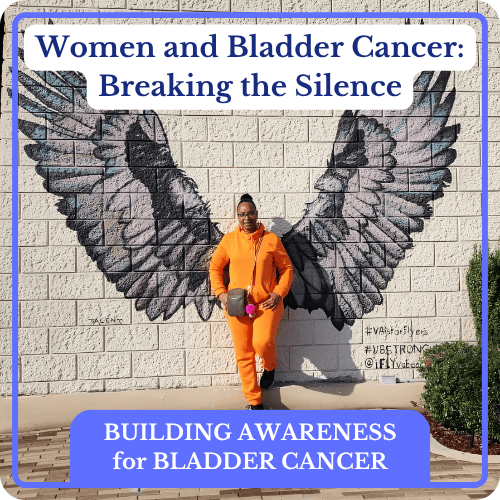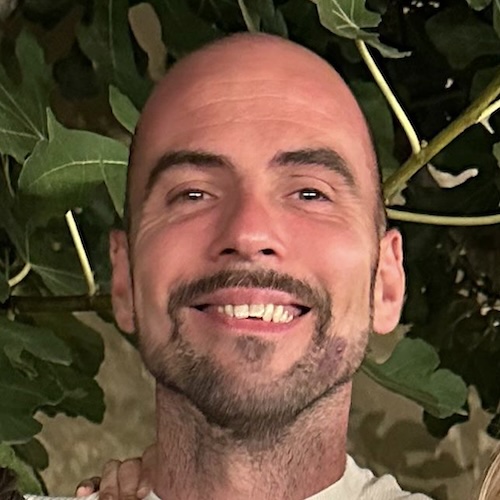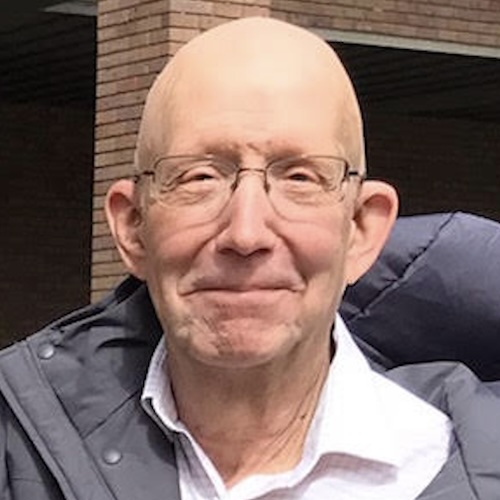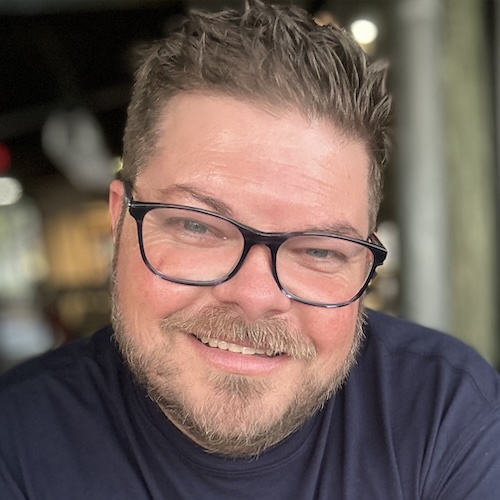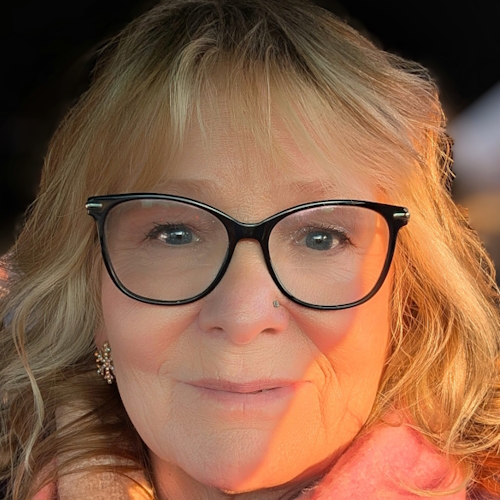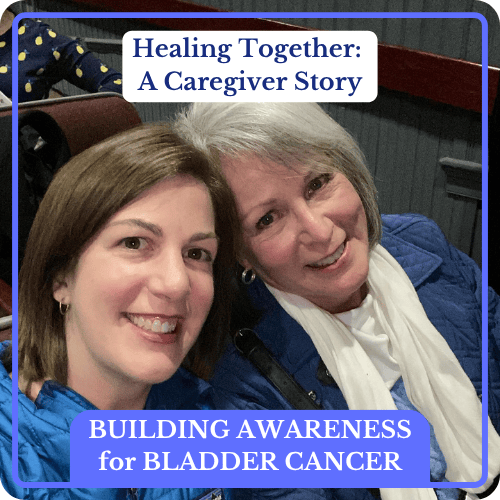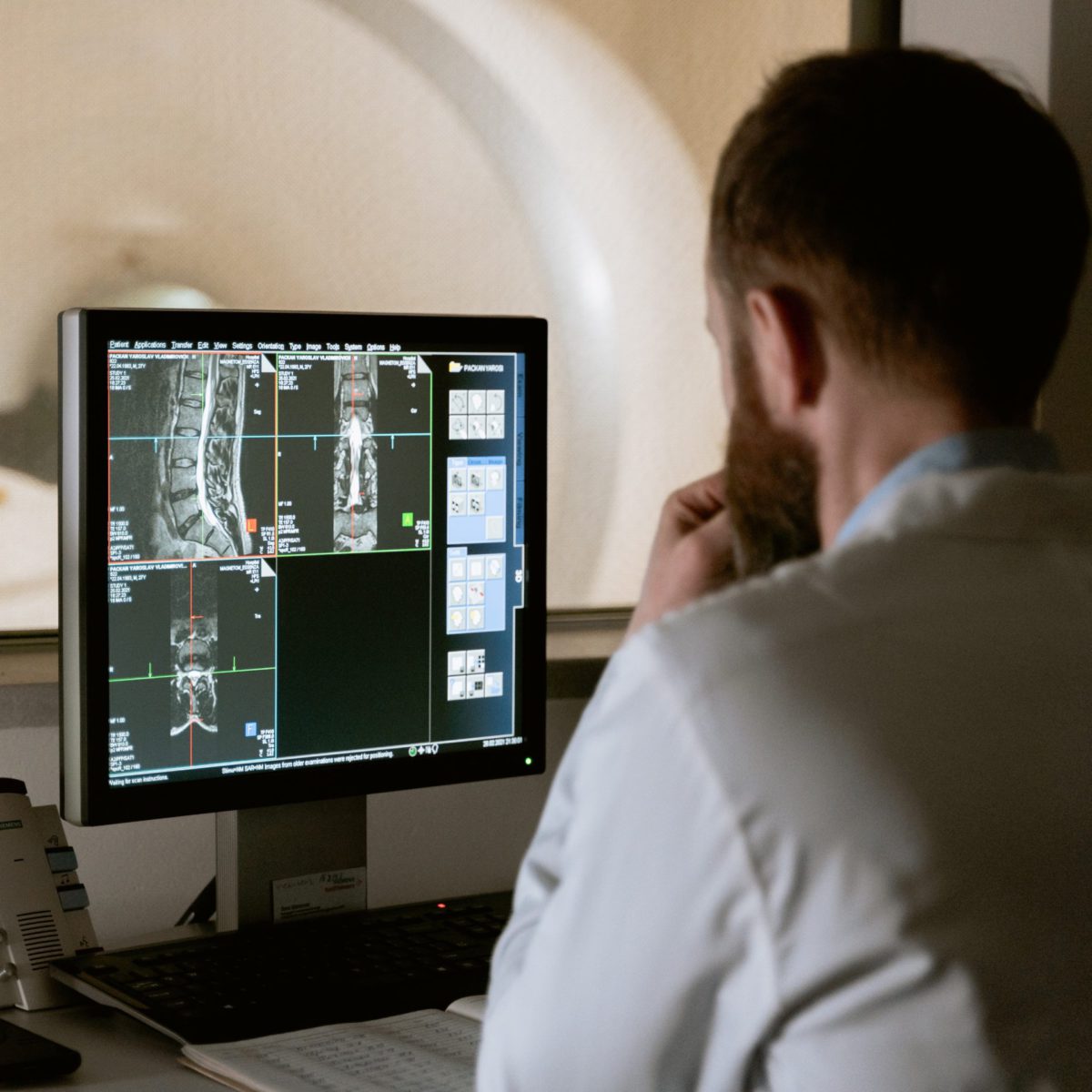Breaking the Silence: One Woman’s Bladder Cancer Story
The Many Faces of Bladder Cancer: Voices of Strength and Resilience
Our series, The Many Faces of Bladder Cancer: Voices of Strength and Resilience, shares genuine stories from people battling bladder cancer. Monica’s story below brings a spotlight to bladder cancer in women. These powerful stories highlight the experiences and the challenges faced by patients and survivors. This series intends to foster hope, understanding, and a fresh outlook on dealing with this condition while raising bladder cancer awareness.
Whether you’re a patient, care partner/giver, or someone interested in learning about bladder cancer, our goal is that these stories of bravery and resolve of those facing bladder cancer will increase awareness and break down myths. Most importantly, we hope you learn the importance of self-advocacy in your own healthcare.
Thank you to Imerman Angels for their partnership. Imerman Angels is here to provide comfort and understanding for all cancer fights, survivors, previvors, and care partners through a personalized, one-on-one connection with someone who has been there.
This interview has been edited for clarity and length. This is not medical advice. Please consult with your healthcare provider for treatment decisions.
From Recurrent UTIs to Bladder Cancer: Monica’s Story
Interviewed by: Taylor Scheib
Edited by: Chris Sanchez
- Introduction
- Initial Symptoms
- What the UTIs Felt Like
- Getting a Bladder Cancer Diagnosis
- Finding the Right Doctor
- Multiple Recurrences and Successful Treatment
- Follow-ups
- How Bladder Cancer Changed Her Life
- What Support Looks Like to Her
- Redefining Her Identity
- Raising Awareness: What Monica Wants People to Know About Bladder Cancer
- Words of Advice
Introduction
Monica began her battle with bladder cancer in 2004 after experiencing recurrent UTIs and finding a lump during a routine checkup. Her proactive gynecologist referred her for an ultrasound, leading to a diagnosis of non-invasive bladder cancer. She faced emotional challenges with initial medical communication, but found a supportive urologist who helped her understand her condition. Rigorous treatment eventually stopped the cancer’s recurrence. She now undergoes annual checkups, managing anxiety and her weakened bladder.
Monica receives immense support from loved ones and the cancer community, which empowers her to share her story and inspire others. Her experience taught her to live fully, shifting from survival to thriving with purpose and resilience. She advises engaging with healthcare providers and staying positive, emphasizing the importance of being proactive and resilient in navigating cancer, thus offering hope and encouragement to others facing similar challenges.
I was getting recurrent urinary tract infections (UTIs) and those were the only times I would see blood in my urine
I was diagnosed with non-invasive bladder cancer in 2004.
I currently reside in Virginia. I enjoy spending time with my husband. We celebrated our 25th wedding anniversary in June 2024. We love to travel, go to the beach, and enjoy living life every day to its fullest.
Initial Symptoms
At the time, I had no symptoms that raised a red flag. I was getting recurrent urinary tract infections (UTIs) and those were the only times I would see blood in my urine, which is one of the signs of bladder cancer to be on the lookout for. I would get an infection, take an antibiotic, and it would go away, but it would come back again.
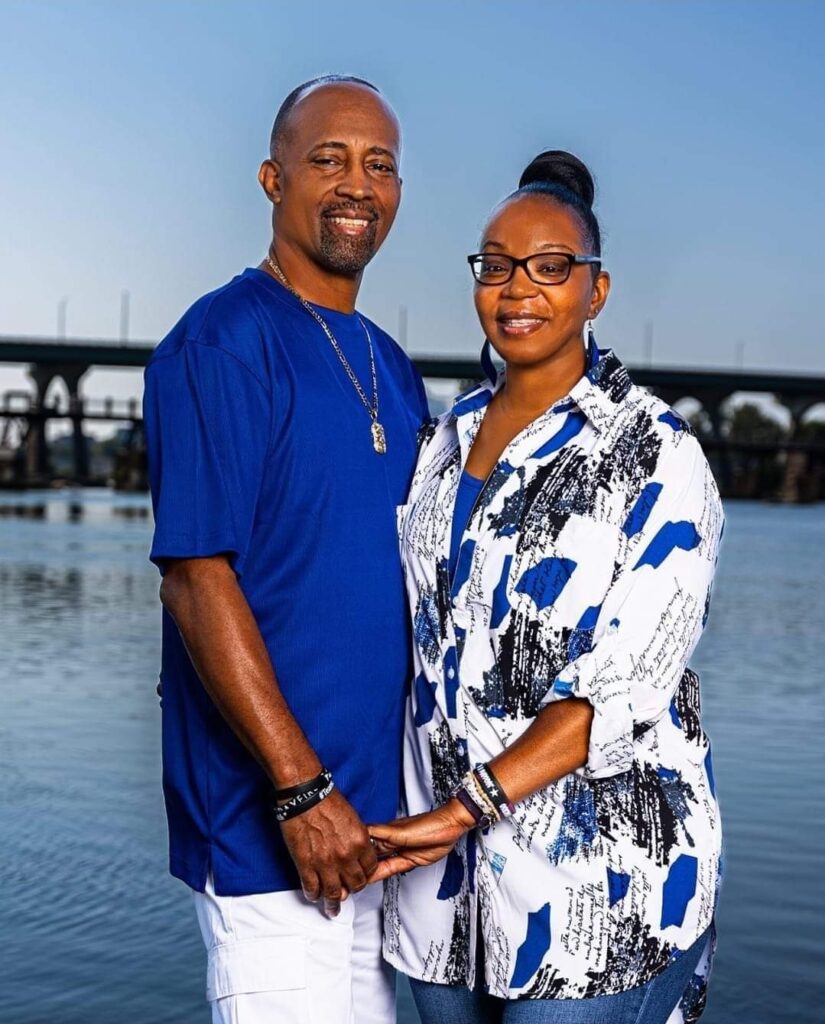
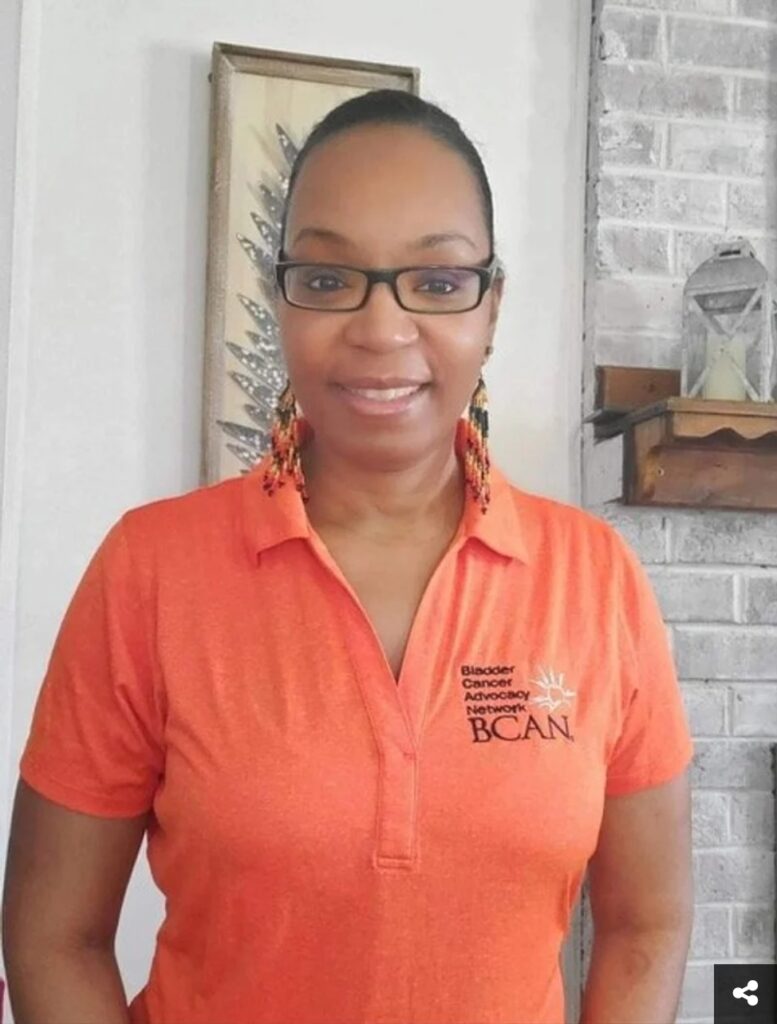
On one particular year though, I was going in to have my annual pap smear and doing that examination. The gynecologist felt something that she thought was over my reproductive area. She said, “I feel a lump or something there. I’m going to send you to get an ultrasound.” When I got the results, she told me that there was something in my bladder and referred me to a urologist.
I went to the urologist. The appointments and follow-up, getting a diagnosis, and getting the results back probably took a month and a half to two months. The urologist did a cystoscope and said there was something there, so they had to do TURBT, which is a transurethral resection of a bladder tumor. After the procedure, they told me that I had bladder cancer.
I like knowing more of the signs and symptoms and being more cognitive. If you see some of those things, it doesn’t necessarily mean that you have bladder cancer, but it will raise a red flag to say you need to have further testing to know what’s going on. Build your awareness and be proactive.
Pay attention if you have urinary urgency, burning sensation, pain, or if you see any hint of blood… Those are symptoms that should raise a red flag.
What the UTIs Felt Like
My UTIs were very, very painful. Almost indescribably so. The pain would go away with antibiotics, but a few months later, it would come back again. Pay attention if you have urinary urgency, burning sensation, pain, or if you see any hint of blood. I’ve heard people say they saw a drop and that was it, and they didn’t pay attention to it. Those are symptoms that should raise a red flag.
I thought, “What’s going on? What’s wrong with me? Why does this keep happening?” I was drinking water, trying to flush my system out, and I didn’t understand. Nothing was adding up. I was relieved when the doctor said something was in my bladder, even though I never thought it would be cancer. It was a relief to finally find out what was going on and the reason behind what was happening leading up to the diagnosis. I’m forever thankful to the gynecologist for taking the extra step to do the ultrasound.

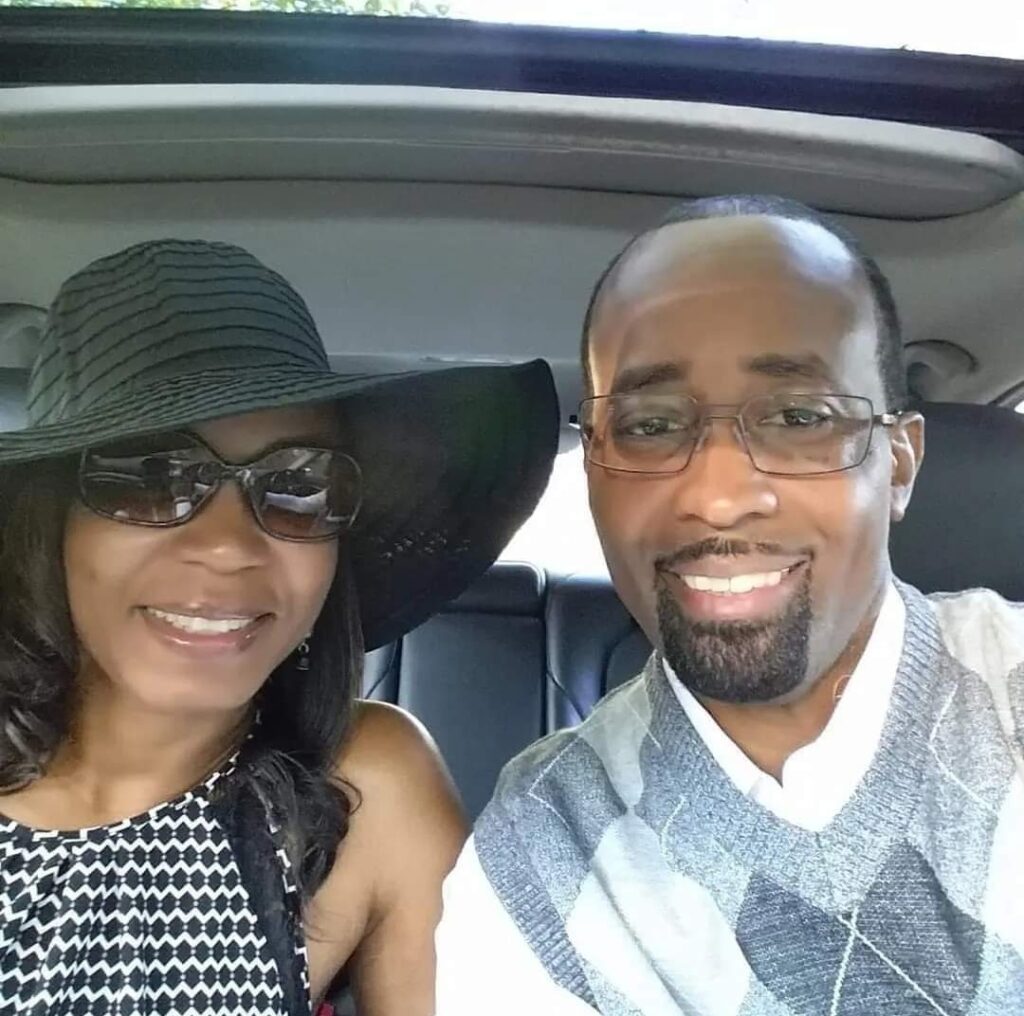
Getting a Bladder Cancer Diagnosis
The day I learned I had cancer was an emotional roller coaster. It taught me the importance of advocating for myself.
My urologist at the time came in, told me that I had bladder cancer, and walked out of the room with no explanation. I sat there crying because I was very emotional. His nurse then came in and said, “We need to schedule you to have this done and that done.” I was shocked. It took me a while to gather myself to even drive home. I ended up getting another urologist because we were not on the same page.
I went online because I had never heard of this type of cancer. I found a lot of information, which was overwhelming. I didn’t fit any of the criteria of someone who would typically get bladder cancer.
I also didn’t see a lot of support groups in my area, which was a little concerning. We kept researching until I found an organization that specifically dealt with bladder cancer, bladder cancer patients, and caregivers. I linked up with that organization and continued to educate myself, my family, and my community.
He talked to my husband and explained in great detail what would happen, the treatment plan, and what we would do for surveillance. I was so happy to find the right doctor for me.
Finding the Right Doctor
I was undergoing checkups every 3 months, but when it would get close to that point, the nurse would call and say, “Oh, he’s not available on your scheduled appointment. Can you come next week?” This started happening repetitively. Every 3 months when I went back, the bladder cancer was back, so I didn’t want to go every 4 to 6 months. I wanted to stick to the 3-month schedule and not a day over.
I called the urology center and said, “I need someone else who’s going to be more attentive, on schedule, and has my best interests at heart.” They directed me to someone else and he’s who I’ve had since then.
We fit. He has a great bedside manner. He draws pictures to help me better understand the terms they throw out. He talked to my husband and explained in great detail what would happen, the treatment plan, and what we would do for surveillance. I was so happy to find the right doctor for me.

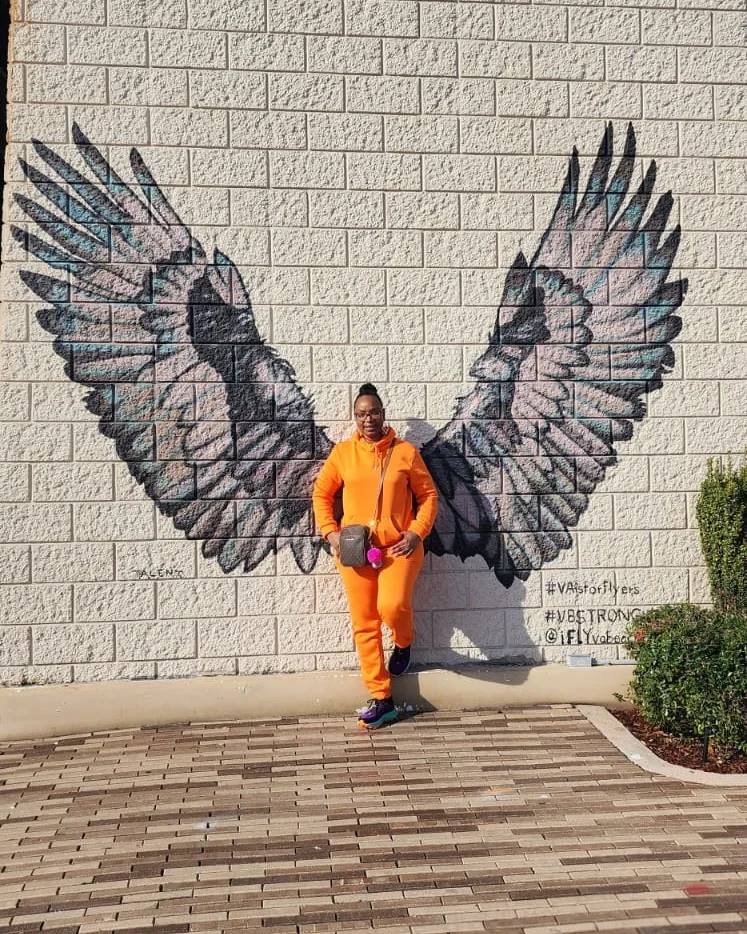
Multiple Recurrences and Successful Treatment
I would get a recurrence probably every 3 months between the first and the fifth year. Even though it was low-grade, non-invasive, and didn’t penetrate through my bladder, it was very aggressive.
They started a different type of treatment for which I had to go in every Thursday. I would get a catheter, get the drug injected into the catheter, and then I had to hold it in my bladder for 2 hours. When I went home, I had to rotate every 15 minutes for up to 2 hours and then let it out. I never understood this, but those were the instructions, so I followed them.
I did a series of those treatments for a couple of months. I never had a recurrence after that, thankfully.
My bladder is very weak and I’m not able to hold my urine, so when I go anywhere, I scope out every location to make sure there’s a bathroom nearby.
Follow-ups
I’m on annual surveillance so I go in for a check-up once a year. The doctor does a scan from my waist down and a cystoscope. Then we go from there. That’s pretty much what it’s been like for the last several years.
It’s still nerve-wracking. They call it scanxiety. You’re sitting there wondering if he will find anything or if something will show up. I still get a little anxious when I go to those appointments. But this is something that I have to deal with because I have to be under surveillance for the rest of my life.

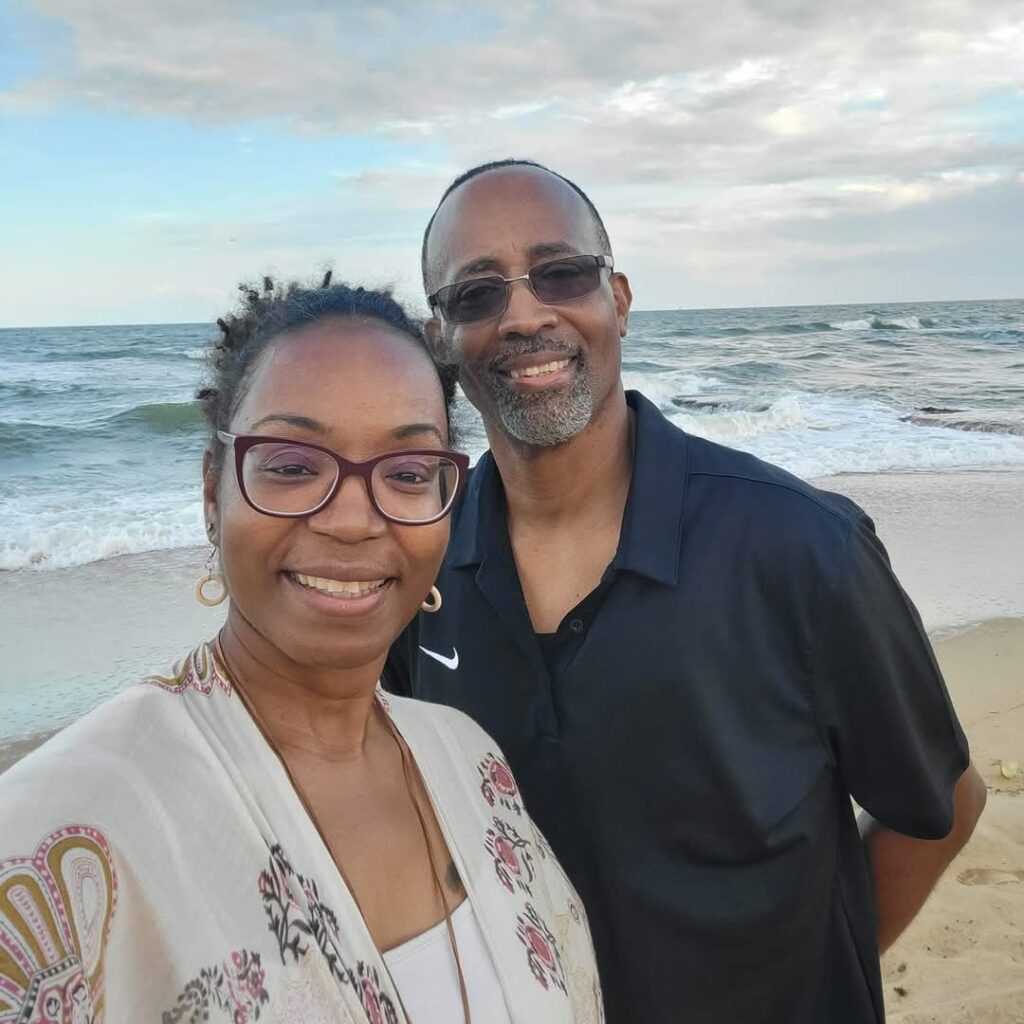
How Bladder Cancer Changed Her Life
The biggest thing for me is not having a fully functioning bladder. My bladder is very weak and I’m not able to hold my urine, so when I go anywhere, I scope out every location to make sure there’s a bathroom nearby.
For everyone else on this journey, it’s the same thing for all of us. We’re always looking for the restrooms. I’m very cautious about what I drink. I tend to avoid things that will make me go more frequently, like caffeine. I mostly drink water or green tea.
I was in survival mode but I shifted to “thrival” mode. I learned to not only survive but also to thrive, even with a bladder cancer journey.
What Support Looks Like to Her
I’m so thankful for my husband. He’s been there the whole time. He’s walked with me every step of the way. My family, friends, and church family have been so supportive as well.
I also have a cancer support group with women of all different types of cancer. I also belong to an advocacy network that focuses on bladder cancer awareness. All of those sources of support keep me well-rounded. It helps me to share my story and, my journey with bladder cancer with the hope that it will help someone else in this situation.
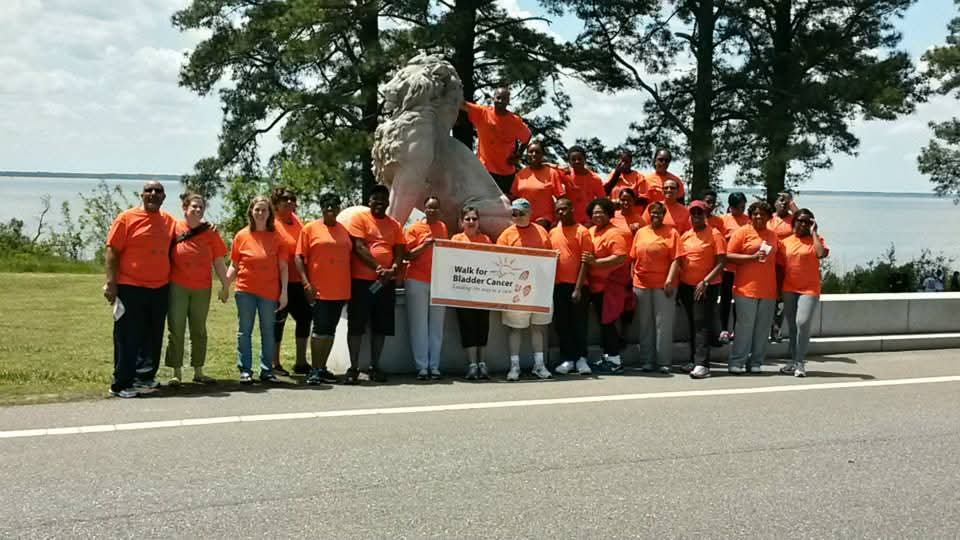
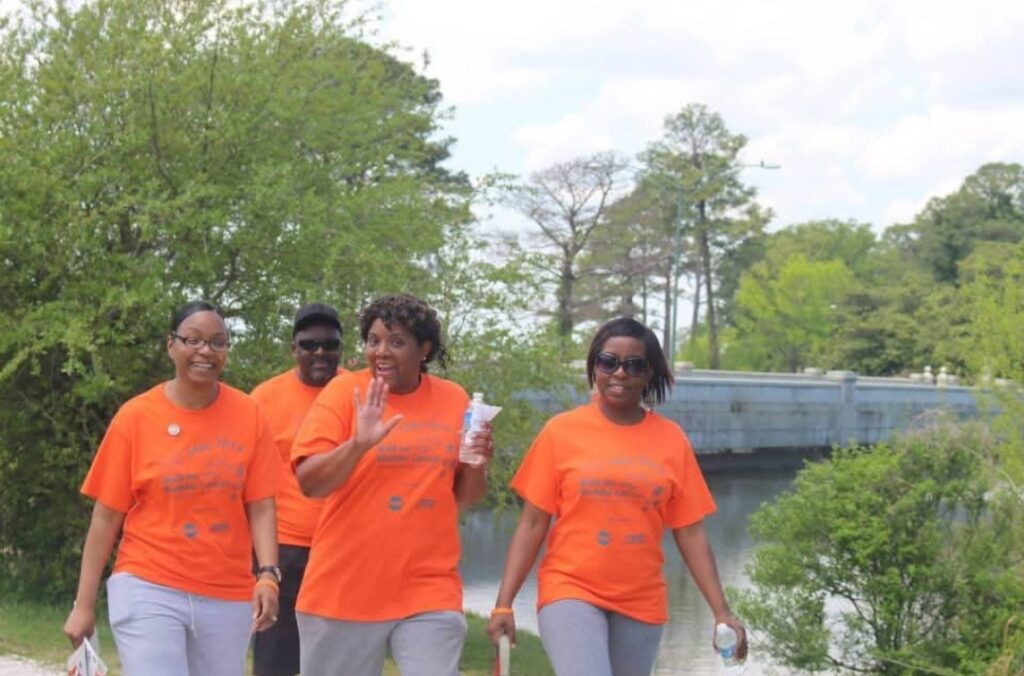
Redefining Her Identity
There was definitely a shift due to my experience. I’ve always enjoyed traveling and relaxing but that wasn’t a priority. Now, I take advantage of that, whether meeting up with my family for the holidays or getting together to talk. I cherish and take advantage of those moments.
I try to live every day to its fullest and not take anything for granted. I still live life, but it was a shift. Now, my mindset is, “Let’s do this.” I was in survival mode but I shifted to “thrival” mode. I learned to not only survive but also to thrive, even with a bladder cancer journey.
Even though you’re going to go through some hills and valleys, continue to stay positive, keep the faith, and trust the process.
Raising Awareness: What Monica Wants People to Know About Bladder Cancer
Before, I thought that hearing “cancer” was a death sentence. It’s going to be over. But you need to change your mindset and believe that everything’s going to be okay, even though you might have those times when you feel that it isn’t.
Keep moving forward, stay positive, and do things that make you happy. I love to walk. I like to journal to clear my head. When things were getting a little difficult for me to handle, I sought therapy to help me get through those tough times. It’s a lot to deal with and it can be overwhelming. Sometimes you need to reach out to get additional help.
In the beginning, I did ask: why me? Then it shifted to: why not me? I feel like we all have a plan and purpose for our lives, and this was the plan and purpose for me, even though no one wants to be a part of that club and be diagnosed with cancer.
There have been a lot of silver linings with being diagnosed, like meeting some wonderful people who have become my extended family. We’ve walked through these journeys, cried, and supported one another. I continue to share my story. I hope to give somebody the hope that they’re not alone, that there is help out there, and that they can get through it.
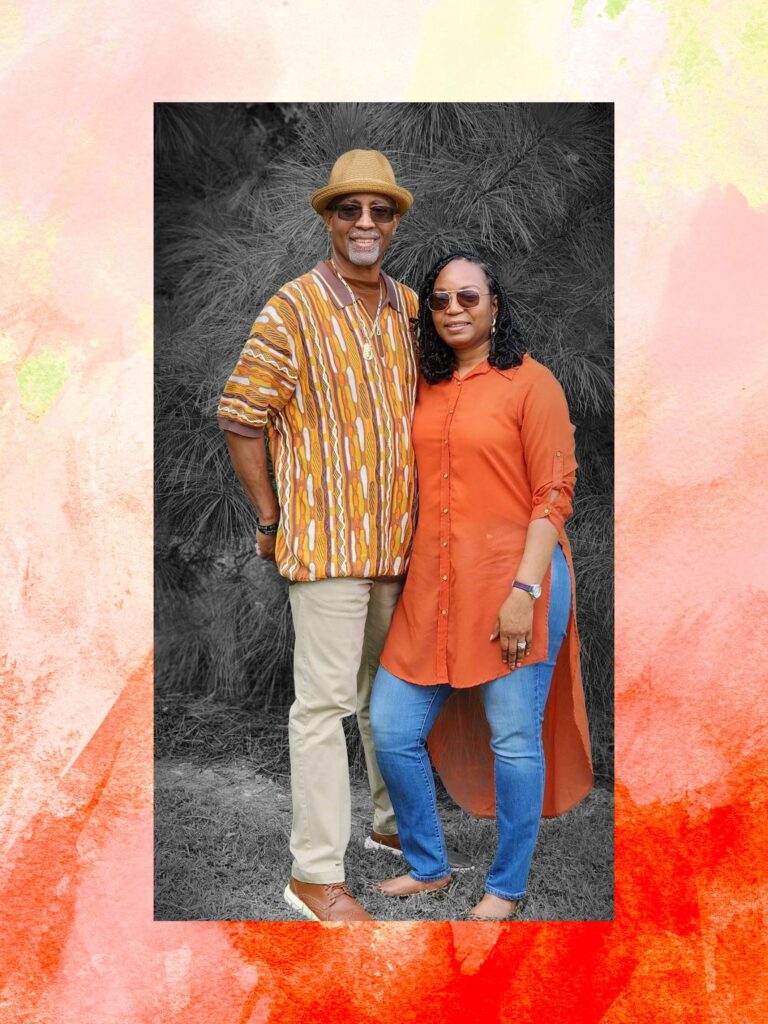
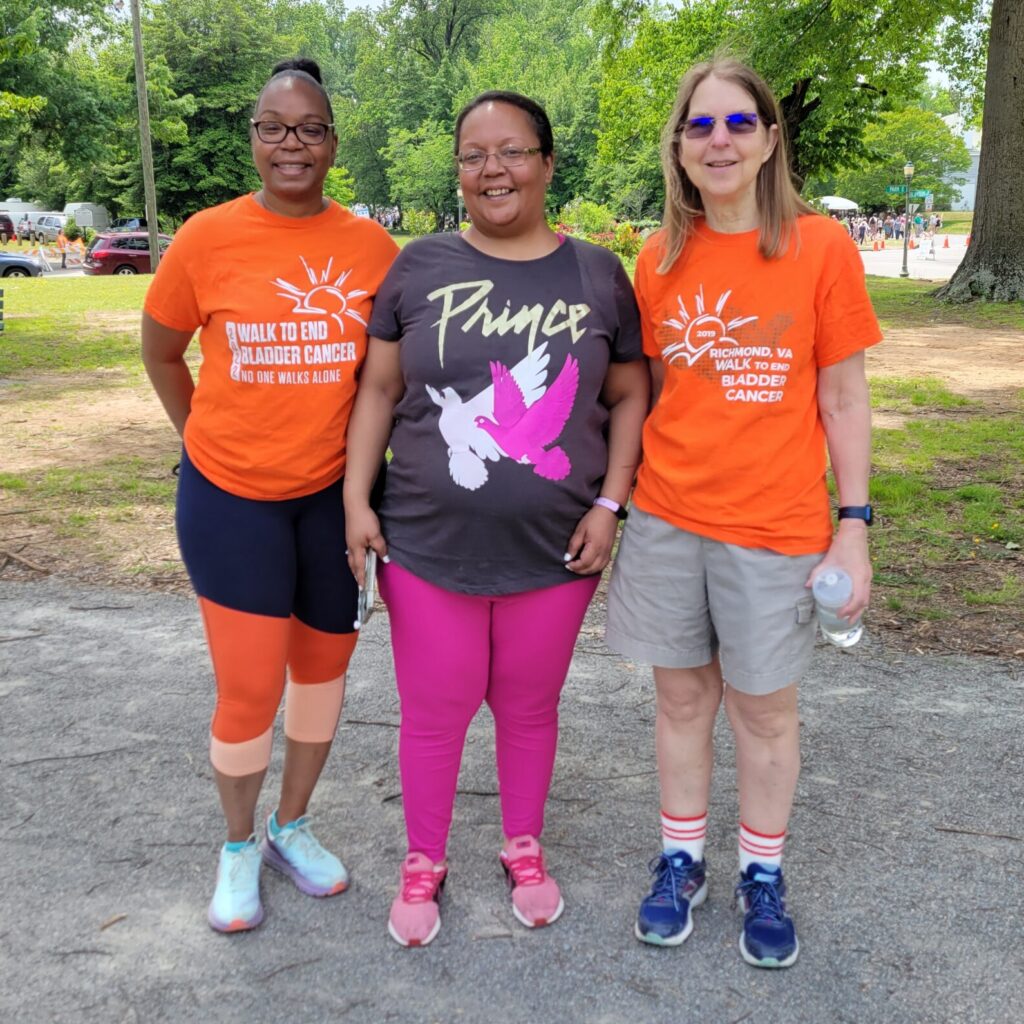
Words of Advice
Sometimes, I think people are afraid to ask their doctors questions. But it’s your life and your body. Be more confident and bold to ask what you need to ask. Bring up your concerns about whatever treatment plan or information that you may have.
If you are unfortunately diagnosed with bladder cancer, you’re not alone. Find a support group. Find a doctor who matches what you’re looking for. Even though you’re going to go through some hills and valleys, continue to stay positive, keep the faith, and trust the process.
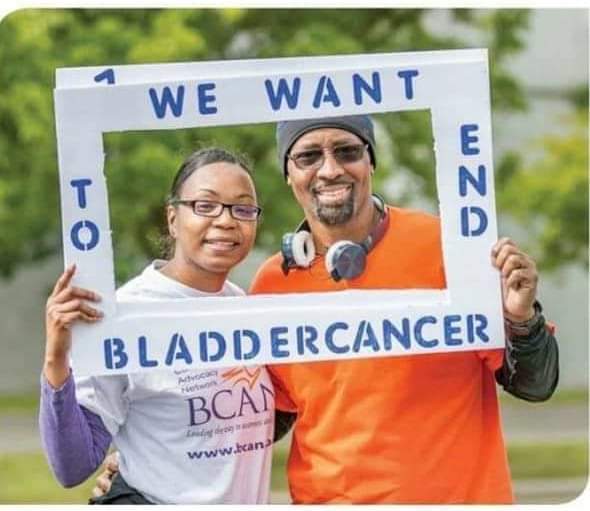
More Patient Stories
Laurent Gemenick, Bladder Cancer
Symptom: Presence of blood in urine
Treatment: Surgery: transurethral resection of bladder tumor or TURBT
Jon T., Locally Advanced Muscle-Invasive Bladder Cancer
Symptom: Darkening urine, blood in urine, dull right flank pain
Treatments: Surgery(transurethral resection of bladder tumor or TURBT), antibody-drug conjugate, chemotherapy
Michael V., Bladder Cancer (Non-Invasive High-Grade Papillary Urothelial Carcinoma), Stage 1
Symptoms: Frequent urination, burning sensation when urinating
Treatments: Surgery (transurethral resection of bladder tumor or TURBT), immunotherapy (Bacillus Calmette-Guérin or BCG treatment)
Dorinda G., Bladder Cancer
Symptom: A significant amount of blood in the urine
Treatments: Surgery (transurethral resection of bladder tumor/TURBT, surgery for papillary lesion), immunotherapy (BCG), chemotherapy
Healing Together: A Mother and Daughter Navigate High-Grade Bladder Cancer
Mary Beth’s story about caregiving starts with an important awareness message about female bladder cancer symptoms.
Danny G., Non-Muscle Invasive Bladder Cancer
Symptoms: Fatigue, back pain, erectile dysfunction, nausea
Treatments: Surgery (transurethral resection of bladder tumor or TURBT), chemotherapy, immunotherapy
Bladder Cancer Resources
Bladder Cancer Causes & Symptoms
Understand common bladder cancer causes, urine color, symptoms, and treatments as described by real patients.
...
Bladder Cancer Series
Bladder cancer patients Ebony & LaSonya talk about their cancer journey, including their first symptoms, how they processed their diagnosis, treatment options, and how they found support. Dr. Samuel Washington, a urologic surgeon, also gives an overview of bladder cancer and its treatments.
...
Diagnosis and Treatment for Bladder Cancer
Learn about the diagnosis and treatment process from bladder cancer survivors and medical experts. Discover diagnosis and treatment options./p>
...
